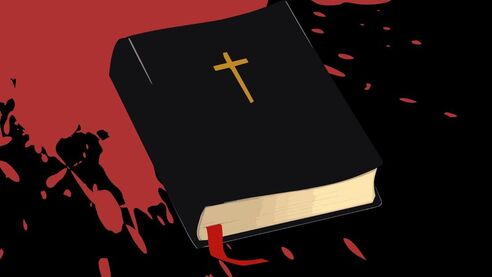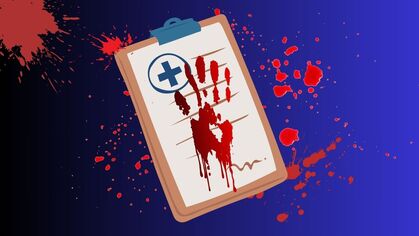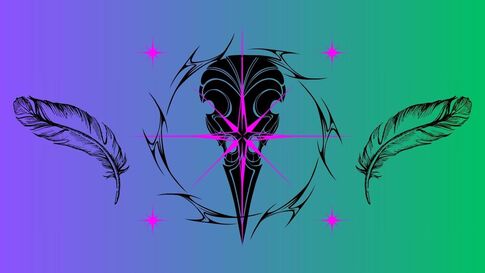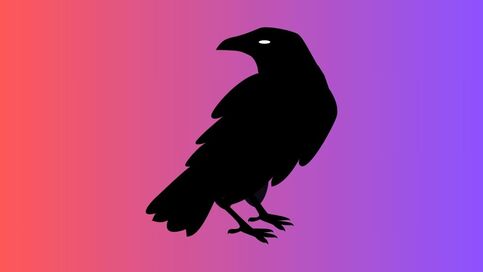|
There’s a box in the ground. It’s about five and a half feet long, three feet wide, and one foot deep. I’m in it. You walk overhead. I can feel the slight tremors through the mud. You can’t hear my screams and the pounding of my fists against the wood. Or at least, I assume you can’t. Maybe you can hear something; a muffled beat, a tiny shudder. But whatever you hear, it doesn’t make you want to hang around. So you go on. Your pace quickens. It’s ok, I understand. You’re not the first and you won’t be the last. Still, I give another cry for help as your tremors become more and more faint and then nothing. My voice is almost deafening. The noise gets bounced around the space and sucked back into me. I’ve become extra sensitive to sound since being in here; every vibration from up there, every creature scurrying around the dirt, every drip that makes it through, I hear and feel it all. My touch is more sensitive too. I’ve mapped out every rough contour of this wooden prison as best as its restrictive shape will allow. I’ve fainted three times at least. I did surprisingly well before the first time. But the minutes between faintings are fast decreasing. The air is heavy and hot like an earthy sauna. I muster up the strength to hit my ceiling a few times more. But the dull thuds give no sign that I’m getting anywhere. Someone needs to get me out. I heard that in times of crisis, some people are capable of physical feats that are otherwise impossible. Some survival instinct gives us momentary superpowers. Well, I didn’t have that when I woke up and I certainly don’t now. I need help. Morse code crosses my mind, but if no-one can hear the thumps, then how would they notice the rhythm? Then I hear the tiniest of scrapes to the left of my head. I swivel my neck a little. Another scrape. Slightly louder. The flick of a leg? There’s definitely something there. If there’s a gap for a bug then there’s a place to aim for. I can’t quite roll onto my front, my shoulder hits the roof at a 45 degree angle, but I turn to search in the darkness better. There is a pinprick of a hole. And something tickles my fingertip. A tiny leg or bug’s antenna. A pang of hope. This is the place to aim for with the metal zip on my jeans. This will be how I exert my last remaining energy before I pass out again. I pull my trousers down to my knees and then use my feet to shimmy them down the rest of the way. The movement is making my breaths deeper and the thick air feels like liquid seeping into my lungs. Sweat trickles down my forehead. I desperately start jamming the small metal point of the zipper into the corner, praying to a God I’ve never believed in to let the wood give way. I shove and stab and scrape with wild desperation, more sweat pouring from me. I think I’m getting somewhere; the hole has widened to about a centimetre. Whatever was wiggling there has gone. Whatever saviour that was. I stick the zip into the gap and saw back and forth, stopping every few seconds to clean the mud away. It widens to an inch, and I fervently continue until the zip wears down to the denim. I scratch and pull as best I can with my fingers. I barely feel the blood but I can smell it. The gap in the box is now a gash and I suck in air through my nose, scared to open my mouth to the mud. I get my palms through but now I’m drowning in mud and my eyes are closing against my will and I know I’m about to faint, possibly for the last time. A last reserve of adrenaline rushes through me and I think that I’m getting that moment of superhuman power. There’s a loud crunch as some of the wood snaps, but the mud is the new wall I’m fighting against, a crushing wave that’s all around me. It makes me think that the God I never believed doesn’t want me to get out of here. I shove my face through the hole and embrace the mud piling against me. Some new strange movement within the compacting dirt gives me cause for renewed fear as I continue pushing against the boards to get my shoulders out. Trying to breathe lightly through my nose so as not to eat any dirt, I swivel slightly and get an arm free of the wood; I push a hand up to my face to find the source of the movement that is getting closer and closer. I touch something that moves, a thick bulbous body half the size of my palm and eight flailing legs. I scream a silent scream and the relentlessly compacting dirt shifts like concrete and forces the spider into my mouth and its legs fight desperately to climb over my sodden tongue and luckily I start to pass out for the final time before I taste it too much and I know that the God I never believed in sent me here for one reason and there’s no time left for redemption.  Daniel Paton has had short fiction published in multiple anthologies and online literary journals and also writes screenplays and stage plays. Having completed his Creative Writing MA, he looks to work on new projects including a debut novel. Amazon Author Page: https://www.amazon.com/stores/author/B09QQMH3Z Instagram Account: @danielpaton96
0 Comments
CW: Suicide It’s a familiar question, one we’ve all heard. It’s the one your mother used to ask when you got into trouble. An ugly, tiresome question. But perhaps it gains new meaning for you today. You’ve never really thought about the bridge before. It’s different once you’re standing here, with the river far below, the wet-cold air stinging your eyes. You can smell watery rot, the whiff of dead things. There’s darkness below the surface. Darkness and dirty water. And perhaps other things, too. You left home this morning not knowing you’d end up at the bridge. That’s not unusual – the bridge can surprise people – but it’s also not not unusual, you understand. For most, the bridge looms up gradually. You might sense it from a young age, or after a difficult life event. Its shadow might darken your horizon as you edge towards adulthood, always alert for the glare of sunlight on steel, the whine of wind between railings. You don’t talk to your friends about the bridge. If your friends end up there too, that’s on them. So you didn’t know where you were going, this fine November afternoon. You walked in a pack, probably. A shrieking, schoolgirl pack, the kind that old ladies cross the street to avoid. You chewed gum, swapping headphones between the intimate, soft-skinned hollows of your ears. So how did you end up at the bridge? Was it a dare, a stupid joke? So-and-so or so-and-so’s brother or sister did it here. Did what? You know what. Let’s go look, you probably said. You like to scare each other at that age. (At any age.) Let’s go see where they jumped. You assumed the police would have installed a safety rail. Blocked off the footpath, even. All those deaths! There should be memorials, flowers, handmade signs taped into plastic to protect them from the rain. It should be a site of national mourning. But it’s not. It’s just the same old bridge. You looked for yellow tape, for WARNING signs. STEEP DROP. DANGER. Seeing none, you crept closer. Onto the bridge itself. Hands on the railing, single file. Slowly, as if escorting a coffin. In the middle of the bridge, you formed your neat little row, looking down. That’s when you got the giggles. You yanked each other’s arms, screaming, pretending to skid towards the edge. Thoughts of so-and-so’s brother or sister evaporated in the face of your exhilaration. The water stared up at you, black and impassive. I don’t understand your laughter. I’m not like you anymore. My own experience blurs into itself the longer I’m down here. I don’t remember individual incidents, only feelings. The scarlet embarrassment of being different. The way I looked down, always down, as though staring into deep water even then. The gut-sick loathing. The rage which pulsed with misery until rage and misery became one. It got worse after puberty. Social capital began to translate into sexual value, which translates into self-worth. I stood at the mirror and squished my face as if it were putty. Smeared the makeup I wasn’t allowed to wear around both eyes until I couldn’t see myself. Tried to pretend I was pretty, although it wouldn’t have helped. Even then, I saw the outline of the bridge, etched across my tearful, teenage eye like a floating lash. So: to return to the railing. You’re there, and you’re cold (none of your friends wore a coat, so neither did you). The wind moves along the bridge with purpose, as though trying to push you back to firm ground. You ignore it. You’re a fourteen-year-old girl; you can’t be swayed. Should we do it? Your friends shuffle closer, giggling. This is a lark to them. Everything is – school, grades, family. They’ve got their whole lives ahead of them. Beringed hands clamp the railing. The girls release high-pitched screams of laughter into the breeze. You’re silent. Your throat has closed up. So-and-so did it. So-and-so really jumped. Stood right here and jumped. From my chiaroscuro vantage below the surface, I watch your friends shriek and grip each other’s hands, up there on the bridge. You’re at the end of the line. Pretending to shriek too, your mouth wide, wondering if you belong there at all. You’re not really going to jump, are you? Are they? I never thought I’d do it, either. Nobody ever does. It’s a game in your head until the last minute. A what-if, a why-not. But there were no friends to hold my hands that day. They did a study once, of people who’d been to the bridge and survived. Not this particular bridge, but then this bridge isn’t particular. Some bridges are, for our purposes – the Golden Gate; the Nanjing Yangtze River Bridge – but really it’s every bridge, it’s any bridge. The survivors all knew they would survive. They never doubted it. If you jump off the Golden Gate Bridge, you’re two hundred and fifty feet up. Two hundred and sixty, at low tide. You travel that distance at around seventy-five miles per hour. Can you imagine the high? Once you jump, for most people, it’s game over. The water smacks into you with the force of a freight train. If not killed on impact, you drown. I don’t remember which happened to me. What I remember is opening my eyes in the darkness of the below-bridge and seeing the riverbed, with its dank scattering of litter. When you fall, I’ll be waiting. The water is dark and cold, like a chest full of guilt. Swim down towards me, my love. I’ll take your bloated hands in mine. Together we’ll swim, you and I and all of your friends who jumped with you. We’ll be a shoal of smooth and limber corpses among the weeds and broken shopping trolleys of the riverbed. Isn’t it tempting? So I ask you again, my dear, my darling: if all your friends jumped off a bridge – would you? Originally published in Tales From Between, Issue 2, 12th April 2023 If you are struggling and need help, please dial 988 for the Suicide Hotline (USA). International Hotlines can be found here.  Katie McIvor is a Scottish writer. She studied at the University of Cambridge and now lives in the Scottish Borders with her husband and baby daughter. Her short fiction has appeared or is forthcoming in magazines such as The Deadlands, PodCastle, and Little Blue Marble, and her three-story collection is out now with Ram Eye Press. You can find her on Twitter at @_McKatie_ or on her website at katiemcivor.com. The wax on Ella's birthday candles dripped onto the cake, causing the number three to bend forward as though wielding an invisible power. At any moment, it could collapse; perhaps it would collide with the zero and melt into one blob. Which age would she prefer it to be? Anything but thirty. It had been a difficult year, and she couldn’t help but think back to her birthday the year before when things were happier and easier. But her friends stared at her expectantly; they wanted her to make a wish. Her boyfriend, Ethan, nodded at her as if to say, it’s ok; nothing terrible will happen. Yet, he didn’t understand what it meant to her. This was Ella’s first year with a shop-bought celebratory cake. In previous years, her Aunt Amanda would make her a chocolate fudge special with extra ganache. But her aunt had passed away six months ago of ovarian cancer, an almost silent but deadly killer. It was a mere few weeks between her first symptoms of bloating and her death. Ella held back her tears as she thought back to holding the hand of her last living family member. The wax dripped onto the thick icing again—it was barely visible on the almost plastic-like surface, but if she didn’t make a wish soon, her friends would think she was insane. Somehow, she felt she was betraying the memory of her aunt and all those lovingly prepared special cakes. She closed her eyes and tried to convince herself that it didn’t matter. Birthday wishes weren’t real anyway. I wish someone from my family was still alive. She blew out the candles, and everyone cheered. Ethan handed her a mug of sparkling wine, and someone turned up the music. Ella danced around the kitchen, forgetting entirely about her earlier worry about the cake and her wish. At some point, one of her friends sliced up the cake, and she tried a bite, but even in her drunken state, she felt a pang of grief for her aunt’s baking. She left the part-eaten slice covered in a napkin on the edge of the table. The following day, Ella woke up in Ethan’s bed alone. She’d hoped their night together might be more memorable, but perhaps they could re-enact the events later. If only she could piece together what had happened after eating a bite of the cake. Maybe the sugar had been too much after all the upset, and of course, the wine. She sat up and sniffed, and she realised she could smell smoke. With that, she realised she could hear the incessant whining of the smoke detector accentuating her headache. She stumbled out of bed towards the door, surprised to notice that she was fully dressed. Perhaps she’d passed out before any fun last night. But where was Ethan? The heat burned her eyebrows, leaving a singed smell in her nostrils as she entered the kitchen diner. Laid out on the floor in six perfect lines of five were the party guests, her friends. But she realised quickly that they weren’t sleeping off the alcohol. Smoke poured out of them, and their charred clothes revealed burnt red skin. The only intact thing was their shoes; she screamed as she spotted Ethan’s Converses. In the kitchen, one person remained singing along to the radio. As she tuned out the ear-piercing smoke alarm, Ella realised the song was Happy Birthday, playing repeatedly. The woman turned around and showed Ella a delicious-looking chocolate fudge cake. “I see you made your wish, dear,” said Aunt Amanda with a smile that looked totally different from how Ella remembered. She pointed to the bodies, “We won’t need this anymore,” she picked up the napkin with the uneaten cake and threw it into the bin. Samantha lives in Plymouth where she is currently studying for a PhD in Creative Writing at the University of Plymouth on the topic of poetry and chronic illness. She writes poetry and short fiction as well as running workshops. Her fiction has been published in Luna Station Quarterly, Fairfield Scribes, Flash Fiction Magazine, and 101 Words. She can be found on the website formerly known as Twitter as @sam_c4rr.
“Take the stairs,” I begged. “Get some exercise.” He laughed. "I'm good!" then pulled away, probably creeped out by the colleague who never talks, suddenly gripping his hand. But what else could I do? Short of babbling and reaching out for his face, which I couldn’t even tell him, existed no longer. He walked away in his white button-downs, and empty space above his neck, waving at me as the doors closed. “Enjoy your weekend!” but I knew, he won’t be coming in on Monday, like everyone else packed in that elevator, going down together, decapitated. I rushed back to the office, to the pantry, to the sink-- to vomit as loud as I could so I don’t hear the crash. Arvee Fantilagan was raised in the Philippines, lives in Japan, and can be found at sites.google.com/view/arveef. He hopes to write a better bio someday.
One evening there are simply strings. Suspended from the sky, undulating on the currents of the air. Thin, ethereal tentacles like pendulous orange nerves draped between skyscrapers. Moving on the wind, but not just on the wind. Searching, groping of their own will. Like maggots in the dark. Their terminus is enshrouded far above, in the dark, in the clouds, the smog of the city. But look up, squint, and I can almost see. I feel the change in air pressure; the world stepping aside to allow for its presence. I shut my eyes. This is how it felt. When the light comes, the strings retreat, but their presence lingers. Under the safety of the sun, I look out the window, into the sky. Of course it’s still there in the day, drifting silent derelict. So, no, not a nightmare; just nocturnal. Still there, just sleeping, hidden. Of course they are. Because even though things like this are supposed to only ever happen in the dark, they’re just as there in the light. This is how it felt; I could still feel him, even when he wasn’t around. I allowed him to tell me what to do in the light just as much as the dark. It was in the light that I allowed his hand around my throat, squeezing so tight lightbulbs burst at the edges of my vision. Simplistic. Comforting. Everlasting nothing. It was easier that way. You get to tell me what to do. The strings come back when the night comes back, and something different happens this time. Something else comes with them, lowered on the end of a set of strings. A naked doll, a vague approximation of us. A marionette lowered onto our stage. Something about it tells me it’s smiling, even though it has no face. No gender. As featureless as an unfinished Ken doll. It remains slumped, awaiting command. You get to tell me how to behave. When something up there finally issues a command, it snaps to life. Its strings stretch taut with weight, and there is music in their tension. A deep thrumming like a plucked bass, barely registering. I can hear it, the song, and so can everyone else. They open doors and windows, they go outside. I can see it, a whole shower of strings descending now, and a field of anticipating arms rising in response. I tell them not to do it. But the arms are begging. Pleading. And the strings reach toward them in response, like wanting fingers. Like a lover in the dark. You get to tell me what to wear. But there are horrid things lovers do to one another in the dark. The strings strike, the lightning precision of a venomous snail. Tendrils tighten against tender flesh and it feels like his hand is at my throat again even though I know he’s long gone and I watch and try to breathe as the strings lift the listeners into the sky, the clouds, the fog, and then they are simply gone. Just like he was, one day, simply gone. His face was there, and then gone, swallowed by darkness as he tumbled. You get to tell me who to see. When they return, they are nude, and they are one, the strings and the people, their feet dangling inches above the ground, strings inserted themselves into orifices and around joints, twisting, manipulating. This is how it felt when I let him decide everything. You get to tell me when to speak. When the thing in the clouds speaks, it is like a foghorn, a low, satisfied moan that echoes off the buildings. A shiver runs down the strings, and everyone attached to it moans in unison, just as he moaned, one final time, as he laid there at the bottom of the stairs. Note: This story was previously published in Pyre Magazine.  Temple (who uses they/them), writes under the name TT Madden. They're a genderfluid, mixed-race writer whose work in scifi, fantasy, and horror often deals with the intersections of their various identities. Their forthcoming novellas The Cosmic Color, The Familialists, and Coffin Corner range from mecha/kaiju, to social horror, and young adult horror. They can be found on social media as @ttmaddenwrites. Uncle Jett declares we’ve dug this chamber dry and had best start lookin’ for a new vein. Pa scowls at his baby brother and mutters somethin' 'bout knowin' his place. Ma gives Pa a disapprovin’ look, but those two hardly ever agree on anything, ‘cept God’s plan. We pack up our belongings and venture deeper into the caverns in search of coal and a new campsite. Pa says takin’ the downward path is always safer than the one leadin’ to higher ground. As we descend, Ma recites verses from the Bible to Sissy, me, and the other kids, same as every day. Sissy still ain’t old enough to understand most of it, like how sufferin’s a natural part of life that fosters faith in God. The way Pa tells it, we just like Noah and his kin, tucked away from the world's wickedness in these caverns. Says all the evil people on the outside been struck down, and that only demons disguised as humans still live there, ‘sides woodland creatures which God gave us for sustenance. Says we're pure of mind, body, and soul, and that's why we're the only ones still livin'. As such, us kids ain't allowed on the outside. To drive the point home, Pa explains the limp in his step is from tusslin' with a demon. I didn’t think nobody could harm Pa. He’s the oldest of us by far, but he’s tougher’n nails. Bein’ uprooted from their familiar surroundings don’t sit well with Aunt Janice’s little boys; Jonas starts howlin’ first, and Jasper soon follows his brother’s lead. Aunt Janice been widowed for about a year and can only handle one at a time, ‘specially with that swollen stomach of hers, so I lend a helpin’ hand. After an hour of walkin’, Pa lead us into a large chamber, and after surveyin’ its perimeter walls with his lantern, decides it’ll do. He looks up at everyone with that cold stare ‘o his and asks if anyone has a problem with the place. His eyes linger on Uncle Jett longer. Pa goes huntin’ for food at nighttime. Sometimes he takes Aunt Janice or Aunt Arlene, an’ other times it's Ma. Uncle Jett guards over us while they're gone. Ma says they risk their lives for us by leavin’ the caverns, but she don’t sound grateful. Sometimes we eat good, and sometimes we go hungry. Sometimes the meat’s lean ‘n tender, but every so often it's chewy ‘n tastes wrong. Pa always says to be thankful for what we got, 'cause things could be a whole lot worse. Last year, we lost Granma Jessup to sickness and Aunt Janice’ husband Jim to demons. But these hardships is blessins’ in disguise, Pa says, ‘cause they bringin’ us closer to God. The adults always talkin’ in low voices after puttin’ us kids down for the night. Sometimes when I’m still awake, my curiosity gets the best of me and I hear some such things ‘bout sheriffs ‘n bounties, and I hear worry in their voices. Can’t stew on these things though, ‘cause I know we're God’s chosen few, bound by blood and faith. Pa and Aunt Janice been comin' home empty-handed lately, so I do my part 'n scavenge for salamanders 'n crayfish to eat, but it ain’t enough. “The good Lord will provide,” Ma keeps sayin.’ A few days ago, Sissy caught a cold. Kept gettin' worse, and the good Lord took her from us last night after everyone was sleepin,' 'cept Pa, who went huntin' to calm his mind. This mornin' the cast-iron stewpot had meat boilin' in it for the first time in two weeks. Ma cried all day. “What God gives, God may take,” she kept sobbin’ over and over again. I still don't understand how He takes people away when they die. Bodies ain't light, an' there ain't no tunnels leadin' up to Heaven that I know of. I miss Sissy so bad it hurts, but I don’t cry. Pa would whoop me bloody if he saw me shed a single tear. That night, we chewed away our sadness in silence. Nobody seemed hungry but Pa, despite it all. The adults been arguin' in hushed tones since Sissy passed. Pa’s eyes flare up like fire when they spattin,’ and I can tell he losin’ his temper. “It ain’t the first time and it won’t be the last,” he yells. Ma, Aunt Janice, an’ Aunt Arlene all huddled 'round Pa, tryin' to sooth him, and I can barely tell 'em apart. Judgin' by the fear in their eyes, they ain't havin much luck. “You girls is just like your Ma, always blurtin’ without speakin’,” barks Pa. Uncle Jett scowls and curses under his breath from across the fire, but avoids Pa altogether. Later that night I wake to screams. The women are all cryin’ hysterically, huddled over Uncle Jett, who’s lyin’ on the ground in a pool of blood. He looks dead. Pa got a gash on his forehead, and he’s bleedin’ real good. “Stupid boy just like his brother Jim, ain’t never learned to honor thy father,” he roars in a rage. “But that’s one less mouth and one more harvest. The Lord works in mysterious ways,” Pa goes from hot to cold in seconds. He grabs a lantern, heads to a nearby water hole, and begins washin’ his face off. Pa’s words leave me feelin’ disgusted an’ confused. An I’m beginnin’ to think he’s been on the outside too much, that his soul ain’t so pure after all, and that he’s no longer a part of God’s Plan. I get up and reach for his unattended rifle.  Andrew Leonard is a married father of three – one human and two golden doodles - residing in Illinois. A speculative fiction writer with a dystopian bent, his works have appeared in Utopia Science Fiction Magazine, Andromeda Spaceways, Sci-Fi Shorts, and Metastellar. TwiX handle: @aleonard82 Instagram handle: andrewleonard1282 Carly shoulders open the ER doors; her hands are busy clutching her slim gut. Weary, wasting faces turn toward her, then away. The only gaze that remains is stony and belongs to the man behind the check-in counter. “Please,” she gasps, “I need a doctor.” “For what, ma’am?” That should bother Carly. She’s too young to be a ‘ma’am’. But Carly, the Carly who cared about things like that, is gone, replaced by a desperate shell. “My stomach… hurts,” she manages. “I’m dizzy. The worse it hurts, the dizzier I get.” “Mmmm.” The man looks at his computer. “Have you suffered an injury?” “No, it just… started.” “Fill out this paperwork. I’ll have somebody with you as soon as I can.” He’s still looking down as he offers a clipboard. She leans on the desk and notices her stomach has swollen enough to seem unfamiliar. “How long will it be?” “I can’t say, since we prioritize people based on the urgency of their condition. I would guess two hours.” “Two hours?” she shrieks. The worn-down waiting faces sneak furtive glances her way. “Well, if you’d arrived earlier, it might’ve been less. But this is a busy time of day, so, yes. Two hours.” The man is petulant, flattening his lips into a line. “But… it hurts,” she begs, barely able to argue through the pain pounding on her abdominal wall. “Please.” He jabs the clipboard at her. “Paperwork, ma’am.” A nurse rushes through a set of double doors. Carly clings to her and feels her growing stomach brush against the nurse’s side. She moans, “I need help.” “Ma’am.” The nurse’s nostrils flare as she shakes Carly off. “You need to sit down and wait your turn.” Carly admits defeat and lurches toward an empty chair. She nearly makes it, but she is weak; her abdominal muscles rip apart while skin tears like crepe paper from her navel outwards. An uninteresting scream dies in her melodramatic throat. As her hypochondriac body flops to the floor, a pearlescent grub the size of a cat flops out from her burst midsection. It slowly unfurls, smearing milky, viscous fluid across the flecked linoleum. Six sharp, segmented legs tentatively explore this new world. Its pulsating midsection glows red with the host’s blood. “Well.” The man sniffs. “If it was that bad, she should’ve said something.”  Grace Daly (she/her) is a disabled author with multiple invisible chronic illnesses. She lives near Chicago with her husband and pets, and spends most of her free time with her dog, who is a very good boy. Her cozy fantasy novella, “The Star of Kilnaely”, is forthcoming with Brigids Gate Press. She has also been published in anthologies by Ghost Orchid Press and Sliced Up Press, as well as in JMWW Journal, MIDLVLMAG, and with Timber Ghost Press. She can be found at www.GraceDalyAuthor.com, or @GraceDalyAuthor for Twitter/X and Instagram. We were cleaning out Grandfather’s house, wading through boxes and heaps of dirt. Neighbors say in life he was a necromancer, reanimating things that should have stayed inert. Until we’d found the bird in a rusted pen, we had paid the rumors no heed. But the poor thing was festering, shreds of flesh decaying ‘round its bony beak. The creature was still alive, halfway ambulant in its cramped cage; a revenant stomping and hopping in seething rage. It stopped to sing a mournful tune with the flicking of its purple tongue. Wheezing shrill whistles from perforated lungs. Its hollowed orbitals met our gaze, a timid, woeful glare. We tried to pry our eyes but couldn’t help but stare. We unlatched its door and futilely, it flapped its featherless wings. Even in death, freedom denied; a bird cursed to forever rot and sing.  Pedro Iniguez is a horror and science-fiction writer from Los Angeles, California. He is a Rhysling Award finalist and a Best of the Net and Pushcart Prize nominee. His fiction and poetry has appeared in Nightmare Magazine, Never Wake: An Anthology of Dream Horror, Shadows Over Main Street Volume 3, and Qualia Nous Vol. 2, among others. His upcoming horror fiction collection, FEVER DREAMS OF A PARASITE, is slated for a 2025 release from publisher Raw Dog Screaming Press. He can be found online at www.pedroiniguezauthor.com. “Well…?” The crow gives a hop, sunlight catching on its beak. Those hazy rays tear, thready and crepuscular, their radiant tangles snaring in the teeth of broken buildings. “Well?” Dust floats down. Down, down, down, sticking to skin. Coating the gravel. Slipping off oil-colored feathers. One pristine talon—as sickle-sharp as a sliver of the new moon—pokes at a line scrawled into the grime. That shallow gutter wobbles, the gore within it coagulating. “Well?” the boy prompts a third time, his initial timidity worn away by exasperation. The crow cocks its head. “That would be simple enough,” it muses, in a voice drawn from depths too great for such a small body to contain. Each word resonates, syllables and ankle bones shifting like tectonic plates do. Like they so recently did. “Is that what you desire, child?” Again, the boy is left shaken. “W-what?” “A well,” the crow clarifies. “Is that your wish?” “No.” It is a reply that the boy feels more than hears, distracted by the sudden, blooming rancidity on the back of his tongue. He tastes meat. Bad meat. Tepid. Raw. It is no coincidence that the crow has begun to peck at one of the limbs littering the plaza: an arm, sprawled across the bloody sigil and starting to bloat. The hand on its end reaches out from beneath a thousand pounds of debris, wriggling as avian appetites grant it the illusion of movement, the illusion of life. The illusion of help. The boy clears his throat. “I want you to rebuild the town. You can, right? That’s what Mom’s book says.” A crow should not be able to hum. And yet, there is no better way to describe the sound the bird makes as it considers its young summoner, seeing through the soot and the lesions and the thirteen years that he wears on his face like bruises. “Rebuilding a town won’t rebuild a life, little one.” “Maybe not,” the boy agrees. “But it’ll give the survivors a better chance at continuing theirs. I mean, we can’t just sit around and wait for aid that won’t come! Have you seen what it’s like out there? The government will drag its feet, the insurance companies will claim nothing is covered, and—and we can’t all fucking depend on GoFundMe!” If ever a crow has given a sympathetic nod, it does so now. “Very well,” the bird coos. Wings silent as gloaming, it perches atop a collapsed wall, meeting the child’s manic gaze. “If the modern ways won’t save your village, I can help you using… older customs. However, I will require your assistance. Is it a deal?” “Yes, fine.” “You’re sure?” “I wouldn’t have invoked you if I wasn’t,” the boy grumbles, wilting. Weary. The fist he scrubs beneath his eye comes away smeared ichor-black; grit crackles between his molars when he sets his jaw and sighs. “What do you need me for?” Malphas smiles. “A foundation.” And the hungry ground opens wide.  LB Waltz has been publishing creative works for over 20 years under various pseudonyms. They enjoy taking walks, biblically accurate depictions of angels, and reading about botanical folklore. Their debut collection, UNDERNEATH THE PERSIMMON TREE, can be found on Amazon, Timber Ghost Press’s website, and atop mossy tree stumps in the dark heart of the forest. March 20th, 2054 I am seventeen… Tomorrow I will be eighteen. At least, that is what should transpire. For you, maybe. The Ides of March give way to the Spring Equinox and with it, the seasonal “returning” of those deemed unwanted before they can grasp adulthood. Unwanted for many reasons. All legal now. Too fat, too thin, too moody, too happy, too lively, not lively enough. Too smart, not smart enough. For loving too much, for not loving enough. For loving someone not in their plans. The insane whims of bad parents are too terrible to predict these days. They call this season’s returnings Spring Cleaning. I am seventeen… I sit upon the flat rock overlooking the lake where I first met her. Where I first met Maryse. The sun is setting. I know they will find me here, but I do not care anymore. I want to see her. I want to remember her. How she smelled. How she sounded. And it’s such a good memory. One I’m terrified of losing. Once I’m gone, no one will remember her how I saw her. How seeing her made me feel. I’m all she had left when they found her. When I die, so does she. I want to run, to hide, to fight. But they’re just temporary solutions that delude those like us into false hope. This world is too far sunken into apathy and fear now. I can hear them coming. Their trucks and their vans. Their sirens. A runaway. That’s how I’m classified. They love runaways. It makes their jobs feel that much more justified. They will bind me, they will burn me, and return most of my ashes to my mother’s loins. My father will consume the rest. My body will not escape the selfishness and cruelty of my kin. But I can hope my mind, my soul, whatever that may be, ends up wherever Maryse is. I miss you, my love. I am seventeen… And I will be that way forever more.  Nathan is an author, screenwriter, and film producer. Published books include the short story collection The Comfy-Cozy Nihilist: A Handbook of Dark Fiction and the novel Love Potion #666. His short fiction has been published with Timber Ghost Press, D&T Publishing, Grinning Skull Press, and Terror Tract Publishing. He's the founder and director of the GenreBlast Film Festival at the Alamo Drafthouse in Winchester, VA and recently co-produced the feature film adaptation of Grindhouse Press' Worst Laid Plans along with the book's editor Samantha Kolesnik. Nathan currently resides in Richmond, VA with his wife and their two daughters. He loves Warren Zevon, Asian cinema, independent pro-wrestling, and a spicy bowl of ramen. |
Archives
June 2024
Categories
All
|










 RSS Feed
RSS Feed